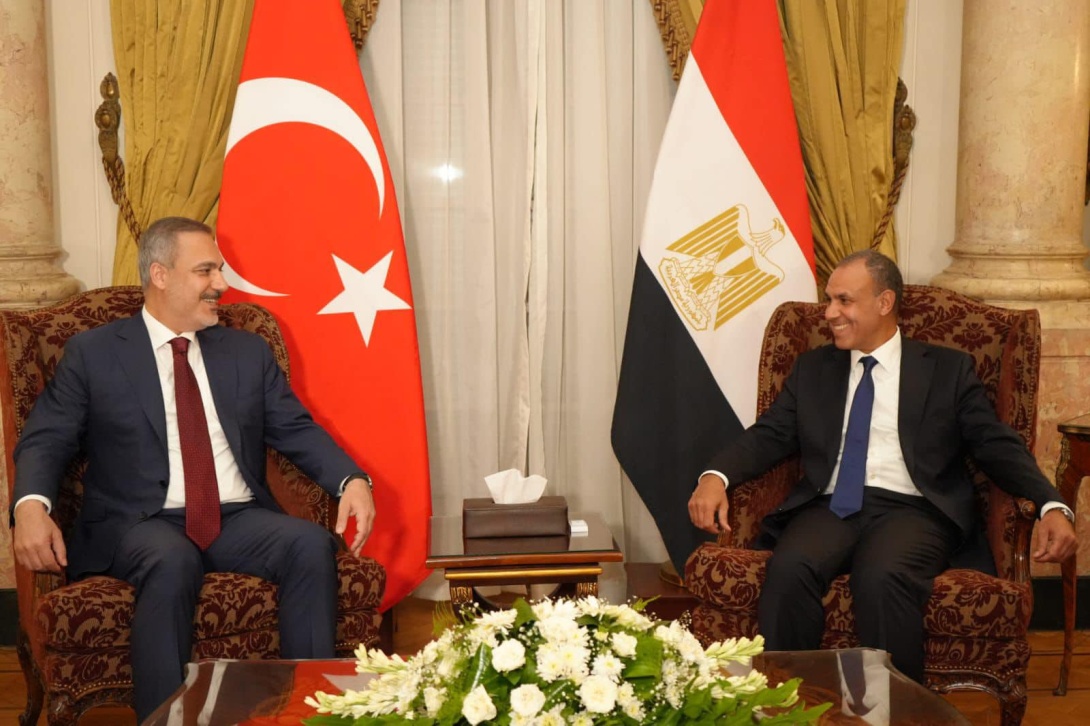 Here’s an in-depth, plain-language article exploring the recent phone conversation between Egypt’s and Turkey’s foreign ministers regarding the complex and evolving situations in Libya and Gaza:
Here’s an in-depth, plain-language article exploring the recent phone conversation between Egypt’s and Turkey’s foreign ministers regarding the complex and evolving situations in Libya and Gaza:
Egypt and Turkey Foreign Ministers Delve Into Libya in Broader Regional Talk In early June 2025, Egypt’s Foreign Minister Badr Abdelatty and his Turkish counterpart, Hakan Fidan, engaged in a detailed phone conversation touching on key regional challenges—foremost among them, the humanitarian crisis in Gaza and the fragile political landscape in Libya. Their exchange reflected a moment of cautious cooperation between two regional powers with historically divergent interests.
Abdelatty began by briefing Fidan on Egypt’s ongoing diplomatic efforts to secure a ceasefire in Gaza. He emphasized Cairo’s role in facilitating negotiations aimed at releasing hostages, opening humanitarian corridors, and delivering essential relief such as medical aid, shelter, and food into the embattled region . Both ministers expressed deep concern about the “humanitarian disaster” unfolding in Gaza and underscored the urgent need for international support and an immediate end to the violence .
But the conversation soon shifted westward to Libya, where ongoing instability and human rights concerns have created another flashpoint for regional diplomacy. Abdelatty emphasized Egypt’s commitment to upholding Libya’s sovereignty and territorial integrity, stressing that the political settlement in Tripoli must be Libyan-led. He urged for both presidential and parliamentary elections to take place simultaneously “as soon as possible,” reinforcing Cairo’s position that any governance roadmap must be guided by, and accountable to, the Libyan people .
Fidan welcomed Egypt’s active role and conveyed Ankara’s interest in the same political objectives. Both ministers reaffirmed their nations’ support for a unified, stable Libya, signaling a rare point of convergence despite their different historical alliances. The alignment comes amid renewed efforts to bring rival Libyan factions under a single national framework through a joint diplomatic process .
The timing of the call is notable. Egypt and Turkey had previously taken opposing roles in Libya, with Ankara backing the Tripoli-based Government of National Unity (GNU) and Cairo supporting eastern factions led by General Khalifa Haftar. But in recent years, both countries have shown signs of détente. Their revived dialogue follows a period of rapprochement marked by high-level visits—most notably President Erdoğan’s return to Cairo in 2024 after a decade of diplomatic freeze .
This evolving relationship is significant for Libya, where attempts to hold national elections have repeatedly stalled amid institutional fragmentation. The discovery of mass graves around Tripoli earlier this year added urgency to the situation—highlighting the security risks posed by rival militias and prompting renewed calls for unified governance and reconciliation .
During the phone call, Abdelatty also updated Fidan on Cairo’s preparations to host a regional conference aimed at relaunching the political process in Libya. The proposed talks would bring together Libyan representatives and their foreign backers, including Egypt and Turkey, in an effort to build consensus ahead of the elections .
Their dialogue reflected not only a shared interest in Libya’s future, but also a broader acknowledgment that coordinated diplomacy is critical to addressing key conflicts—from Gaza to Tripoli. Abdelatty underlined that trilateral engagement must elevate humanitarian and political goals over past political baggage.
For analysts, the conversation signals a more pragmatic approach by both Cairo and Ankara. While no agreement was formally announced, the call is a clear indication that regional dynamics are shifting. Both countries now appear open to leveraging their influence to support Libya’s political roadmap—provided the process remains Libyan-owned and inclusive.
Even so, challenges remain. Libya’s deep-seated mistrust, militia entrenchment, and external meddling threaten to derail any political settlement. The discovery of mass graves only underscores the urgency of stabilizing security and building institutional confidence.
Still, the Egypt–Turkey dialogue is a step in the right direction. By engaging directly, they open the door for coordinated support for ceasefires, elections, and humanitarian initiatives—both in Gaza and Libya—at a time when unity and diplomacy are in alarmingly short supply.
Ultimately, it is Libyans who must lead the process. But as external backers with influence and capacity, Egypt and Turkey have a critical role to play—whether by convening talks, offering security support, or pressing rival factions toward common ground. If they succeed, it could herald a new chapter in regional cooperation and give Libya’s long-suffering people reason for hope.
Let me know if you’d like context on Egypt–Turkey diplomacy, Libya’s election timeline, or external geopolitical influences.

